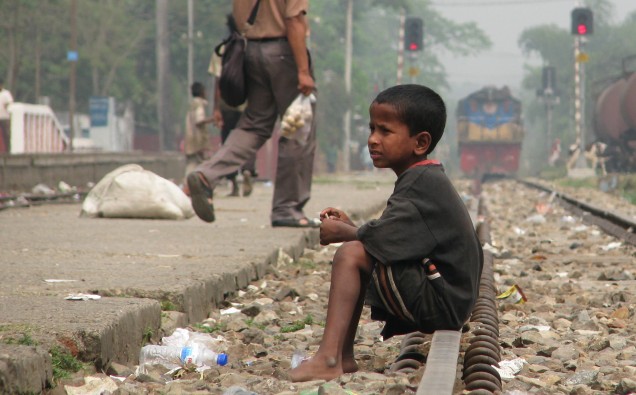
A string of recent eye-opening reports have established links between inequality and turmoil at social, national and international levels. For example, a report late last year highlighted how inequality and economic frustrations led to Arab Spring of revolutions in 2011.
Despite technological advances and Internet-heightened consciousness about imperatives of development, many lingering issues refuse to go away, keeping the marginalized way behind in the race for better quality of life. Endemic corruption, concentration of wealth in a few hands and unfair trade and business rules retard development for people with meager capital or natural resources.
Inequality also is cause of insurgencies and militancy in developing countries in South Asian countries like Pakistan and Afghanistan and several African states. Additionally the flight of capital and human resource from conflict-hit and poor countries makes matters worse with erosion of jobs and brain drain respectively.
On the other hand, Asia Pacific and Western countries including the United States have benefitted enormously from clusters of extraordinary talented professionals, scientists and academics they attract each year.
Another UN report analyzed by Views and News recently says the richest one per cent possesses more than half the total wealth of the world.
Meanwhile, some rich countries and the World Bank have been assisting poor countries to come out of the poverty trap but is that enough to pull millions out of poverty morass?
Is there a planned and coordinated effort to stem the widening gap between the rich and the poor?
This week, the United States pledged that it would continue to focus on removing inequality, and acknowledged the implications it spawns for both societies and the international community.
Inequality is a universal challenge faced by least-developed, middle-income and developed countries alike, but which can be overcome by political will at national and international levels, the United Nations deputy chief said at a meeting convened by the UN Economic and Social Council (ECOSOC).
Deputy Secretary-General Jan Eliasson noted that inequalities within and among countries pose an immense challenge to global development efforts.
“Large disparities in income, wealth, power and opportunity plague our work for progress, both internationally and nationally, so do also large gaps in access to education, healthcare, water, sanitation, food, energy, and social protection,” Eliasson said.
Addressing inequality is one of the areas in the context of the 2030 Agenda for Sustainable Development. The 2030 Agenda, adopted by UN Member States in September last year, pledges to reduce inequality.
Inequality harms economic growth and poverty reduction, the UN official said.
It undermines social cohesion and undermines people’s sense of fulfillment and self-esteem. Inequality worsens the quality of relations in the public and political spheres. It stymies potential in human beings. And it wastes a lot of talent.
Yet, there is nothing inevitable about growing inequality. Inequality is strongly affected by policymaking, by public office and by pressure from leaders. “Where the political will exists, much can be done to address it,” he stressed.
Inequality between countries also remains a formidable challenge, the UN deputy chief said. Among the drivers of these gaps are illicit financial flows, financial manipulations, tax evasion and lack of harmonization of tax codes among countries.
“Let us recognize that inequality is not just a statistic or a value-free measure of economic activity,” he urged, as inequality is increasingly harmful, sowing the seeds of division, pushing societies towards polarization and fracture.
ECOSOC President Oh Joon says today seven out of 10 people in the world live in countries where income inequality has risen, in many cases, to the highest level in 30 years.
“The fact that the gaps between the rich and poor are widening, despite improvements for the poorest, indicate that there are structural elements which cannot be properly dealt with by poverty reduction efforts alone,” he said.














